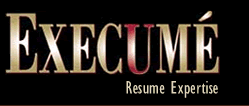
![]()
Catch - 22
How can you get experience when you can\'t get your foot in the door?
AUTHOR: Maria Mallory
PUBLISHED: September 9, 2000
Duane Chattam thought he made all the right moves. Intent on leaving behind his job as a paint prepper to move into a career in information technology, the 20-year-old Calhoun resident enrolled in Coosa Valley Technical College. He took night classes, studying to become a software specialist. When he finished his classes, he began looking for a job.
That was 1 1/2 years ago. Chattam still hasn't found a position.
"I was expecting to land a job," Chattam admits. "I mean, I'm not going to say without any problem, but I figured something would have come along before now."
So what is the problem?
Chattam says he hears it over and over again: "We need someone with experience," potential employers are telling him. "How are you supposed to get the experience if no one wants to hire you for lack of experience?" he asks.
Chattam's problem is an age-old Catch-22 that often confronts recent graduates and career changers.
"At some point, everybody faces this," says Thomas A. Freese, a career adviser and author of "Secrets of Question-based Selling."
One of the most important steps in landing that first job is to manage your expectations, says Doug Griest, one of the founders of Management Psychology Group in Buckhead.
"Most people have their sights set on a particular job and they're getting the roadblocks because they don't have experience in that particular job," Griest says. "I think on thing you have to do is lower your expectations a little bit and take a job that may not be your idea, but one that maybe you can gain that experience under your belt and maybe a year or two later move to the job you want."
But don't count yourself out unnecessarily, either, Freese says. "Most people who interview don't have the exact experience for the job they're interviewing for. Most people who et hired don't have the exact experience for the job they're hired for," Freese contends. "Inexperienced people are hired all the time. The challenge is, how does a candidate cause an interviewer to believe that they are capable of accomplishing the objectives of the job, given they don't have the exact experience."
As you approach the job market, your objective should be to figure out what skills and aptitudes are necessary for success in the position you desire and then compare them to your own skill set and experience, counsels Gayle Oliver, author of "Execume: It's More Than A Resume, It's a Reflection Of You."
Oliver suggests a series of questions to ask yourself as you prepare for the job you want: "What does it take to be successful?" "What are the skills that support that?" "What are the behaviors that I've been doing in the past and what skills are associated with that?" she offers.
You may find that you've got more marketable experience that applies to the position you want than you first realized, Oliver says. "There are all sorts of skill sets that you demonstrated throughout your life. It doesn't have to be on a job. It could be volunteer work, college activities, hobbies," says Oliver.
Understanding your capabilities is a crucial element in selling yourself to future employers and beginning to fill the experience void.
Copyright 2005 - 2024 Execume, Inc. All rights reserved. This material may not be published, broadcast, rewritten, or redistributed without permission of Execume, Inc.
HOME
| CONTACT US
Copyright © 2000-
2024 Execume, All rights reserved. Execume™ is a registered
trademark.
Website by: ThinkNetSolutions
![]()
Search
Engine Placement by: Technology for People
